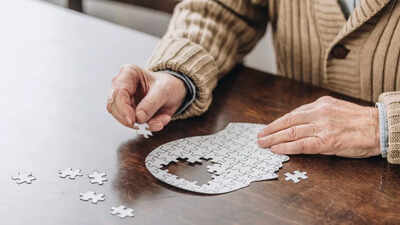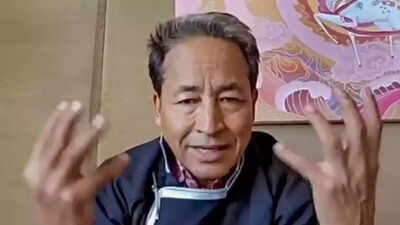Neurologist warns of 5 signs that increases the risk of dementia

When it comes to dementia, people usually think of memory loss or confusion as the first alarms. But the brain often gives much quieter warnings, hidden in everyday life, long before those symptoms surface.As per Dr. Bing, MD MPH, lists 5 signs that can be so ordinary that most of us ignore them until it’s too late. Recent studies, however, are drawing attention to patterns in how we move, feel, and sleep that may reflect early changes in the brain. Recognizing them early could make a real difference in protecting long-term cognitive health.
Struggling to balance on one leg for ~10 seconds
Being unable to stand on one leg for about 20 seconds(Dr. Bing suggests 10 seconds) can point to early brain changes. Balance relies on the cerebellum and basal ganglia, areas also affected in dementia. A Japanese study found that people who couldn’t balance well were more likely to have small-vessel disease in the brain and lower cognition. This doesn’t mean failing once predicts dementia, but if balance is consistently poor, it may reflect early neural decline.

Difficulty rising from a chair or squatting
The simple “sit-to-stand” test, where you rise from a chair without using your hands, reflects lower body strength and mobility. Poor performance here has been linked to dementia risk. A UK Biobank study found that slower chair-stand times were tied to a higher chance of future dementia. Experts note that weak legs may signal reduced blood flow and brain function. Since physical strength and cognition share brain pathways, this decline can be an early warning.
Acting out dreams at night
Frequently kicking, shouting, or punching during sleep may suggest REM Sleep Behavior Disorder (RBD), where people act out their dreams. Normally, muscles stay paralyzed during REM sleep, but in RBD, this safety system fails due to early brainstem degeneration. Long-term studies show that up to 80% of people with idiopathic RBD later develop Parkinson’s disease or dementia with Lewy bodies, often within 10–12 years. If symptoms are present, a sleep study is essential, as early diagnosis allows doctors to manage risks and improve safety.
Persistent feelings of loneliness
Loneliness is more than just being alone—it reflects feeling socially disconnected. Studies show it is linked to higher dementia risk. A meta-analysis found lonely adults had a 40% higher risk of dementia. Brain scans reveal reduced grey matter in memory regions like the hippocampus, and loneliness is also associated with changes in BDNF, a protein crucial for brain health. Chronic loneliness triggers inflammation and stress pathways that speed up neural decline.

Weak hand grip
Grip strength is an easy measure of overall health and frailty. Struggling to open jars or carry groceries can signal weakness that is linked to brain decline. A large study in JAMA Network Open found that lower grip strength was associated with smaller brain volumes and poorer cognitive performance. Weaker grip may relate to inflammation, reduced activity, and early frailty. The good news is strength can be improved—resistance training, protein-rich diets, and targeted hand exercises have been shown to boost grip and brain health.




